Jon Goode is many things: an ex-Marine, a former accountant, Emmy-nominee, and entrepreneur. What’s most significant is that he’s a veteran of Atlanta’s underground spoken word scene. Most recently, Jon appeared on CNN’s documentary, Black in America, introducing each of the program’s segments with his poetic flair. I sat down to chat with Jon recently about his experience with the genre and his involvement with the show.
ksolo: What was the spoken word scene like in Atlanta when you started out?
JG: There weren’t a lot of places that were doing spoken word. There was Yin Yang and Patti Hut at Rio Mall. Then Wind Down Wednesday at Kaya. Patti Hut was where you rehearsed to go to Yin Yang.
Yin Yang used to be bananas. Used to be. There’d be people everywhere. Standing, sitting on the floor. You almost had to body surf to the stage. And the artists were off the chain – Johannes, Shauna Kent, Star Pickens, Aqiyl Thomas, Spinxx. All those cats were fire.
We used to line up for like two hours to get on stage. That’s how I met Cola Rum and those cats – from being in line together. You had to fight to get on the list and you couldn’t be on no bullshit. It was real competitive. Real…sharp. Every person was different. That’s what made them so dope. Everybody came different. Everybody was fire. That’s what made the ATL scene. That’s what used to make it.
ksolo: What was the 1st poem you performed?
JG: I did a poem that was a take on Gil Scott’s, The Revolution Will Not Be Televised. I got a standing ovation. The crowd went nuts.
ksolo: What happened after that?
JG: My second performance, I got booed off because I couldn’t remember the words. That gave me a nice dose of humility right up front. After that, I took the stage much more seriously. I would go and practice and turn on the TV real loud. If I could remember the poem over the noise of the TV, then I knew I knew it.
After making a name for himself in Atlanta, Jon and his fellow ‘classmates’ hit the road, performing at venues along the East coast. In addition to performing, Jon started a company, Goode Stuff Entertainment, which served as a booking agent for some of Atlanta’s best talent, including: Amir Sulaiman, Barney Harvey, Tommy Bottoms, and Fayanna. In those days, most spoken word artists were regionally known at best. But the 2001 premiere of Def Poetry Jam on HBO expanded the genre’s reach to national and international audiences, and provided many talented spoken word artists another level of exposure for their craft.
ksolo: When did you get Def Poetry Jam?
JG: <Chuckles a bit>
The 1st season – GA Me and Abyss were on it. Then 2nd season, Malik (Salaam) was on there. I didn’t get on there until like 5th season, even though I sent them a tape 4 times.
The first time I sent ‘em the tape. I got, “They don’t like you. They need you to do a back flip and burst into flames.”
The next year, I sent ‘em the exact same tape I sent them before. This time, they wanted me to moonwalk or something.
3rd season came around. Everybody’s like, “You gone send a tape?” You know what I sent them? The exact same tape.
The 4th year, I was like, “Fuck it. I ain’t sendin’ them nothing.”
By a stroke of sheer coincidence, a representative from Atlanta-based radio station Hot 107.9 contacted Goode Stuff Entertainment to do promotions for a Def Poetry Jam contest at the Fox Theatre. The winner would get a spot on the show. On the eve of the final performance at the Fox, one of the poets had to leave to leave the country unexpectedly. So Jon stepped in. Just before he went on stage, he ran into Stan Lathan in the green room.
JG: A lot of ppl don’t know that Stan – Sanaa’s father – is behind Def Poetry Jam. You see Russell Simmons’ name all over the place, but it’s Stan’s. When I saw Stan in the green room, he asked me if I was gonna perform. I said, “Yeah, I’m about to go on stage.” Stan says, “Okay. I got my eye on you.” And I’m like, “I got my eye on you too!”
Anyway, I went on and performed. And the poem killed. It did real good.
ksolo: I’m hip to the stage lingo, Jon. I know ‘killed’ means you did good.
JG: When I do colleges. I always tell that story. Get to where you get to by being you. It might take a little longer, but you’ll get there.
ksolo: So did u ever meet or hang out with my babby daddy?
JG: Who, Mos?
ksolo: Uh. Yeah.
JG: Amir and Mos’ family are really cool. So we got to hang out with Mos. He’s a funny dude. Seriously, if Mos decided to stop rhyming / acting, he could be a comedian.
ksolo: So what was your experience like after you did Def Poetry Jam?
JG: Def Poetry was a gift and a curse. Not for me but for the genre. Before Def Poetry everybody did it ‘cause they wanted to do it. It wouldn’t make them no money. You actually lost money doing poetry. You had to pay $5 to go on stage.
After Def Poetry, people who wanted to be rappers and couldn’t, started doing it, thinking, “Oh, I’m gonna blow up!”
ksolo: How did you get involved in Black in America?
JG: I was on the road, and a contact at CNN called and told me they wanted me to send a DVD of my stuff over to the promo team.
They had three ideas for the show, and one was poetry. They told me, “We wanna take you to shoot you because we think it’d be easier to say, ‘Look at this’, versus trying to explain the concept to the show’s producer”. So we went to this warehouse in Castleberry Hills and shot me performing a few pieces.
Mark Nelson (the producer) loved it. He wanted it exactly the same way. Same outfit, everything. That’s why I was wearing a sweater in July.
ksolo: How did you come up with the pieces you performed on the show?
JG:They gave me a script for the show. And Mark told me to, “write ‘em as edgy as you can make ‘em”.
I’m like, “Are you sure?”
He goes, “Sorry. As edgy as we can make them.”
For each segment, I would write like 5 pieces and send them all in. Then they would read ‘em and maybe say, “change this part,” or, “We can keep this one”.
ksolo: There are a lot of mixed opinions about the show. Some people called it groundbreaking, others think it just presented stereotypes. What’s your take?
When I was reading the script, I thought, “This is solid”. I don’t know if it was truly explained that the show was supposed to cover the 40 years since King’s assassination. They had 4 hours to cover 40 years, and they chose to give you a narrative.
But I know people had complaints. This one cat called me saying that the show only presented a certain image of black men. He was like, “Me and my homeboys, we play golf two times a week. I don’t know any black guys that haven’t graduated from high school.” And I’m like, “Does that mean they don’t exist?”
I think, for real, that some cats make it, they’ve overcome, and they don’t see what others are still going through. Some cats have arrived, but they’ve yet to look back to see who hasn’t made it yet.
I had the chance to talk with the producers, and everybody acknowledges that they could’ve made another show with what was left out of this one. My hope is that this is the beginning. This is, at the very least, a start. At least the conversation has begun.
ksolo: Do you have any personal commentary on what it’s like to be black in America today?
JG: For me, it’s like a gift and a curse. There’s opportunities today we never had before. But it’s 2008, and we just got the first legitimate black candidate for President. Think of all these other firsts that just happened. All these first-timers in their particular area – like Denzel, Halle.
We’re making strides, yes. Overcome? Not yet.
**************************************
Catch Jon Goode at Poetry, Politics, and the Polls – September 26 at 595 North.
cheers,
k

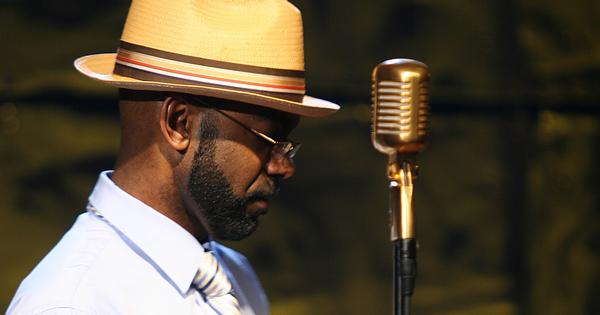
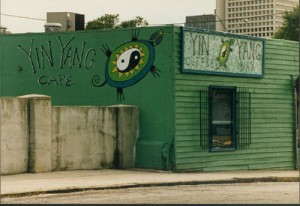
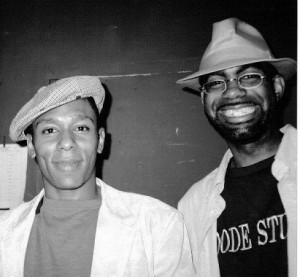
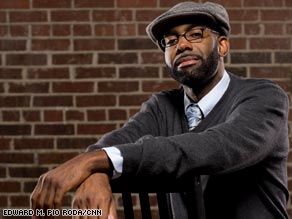
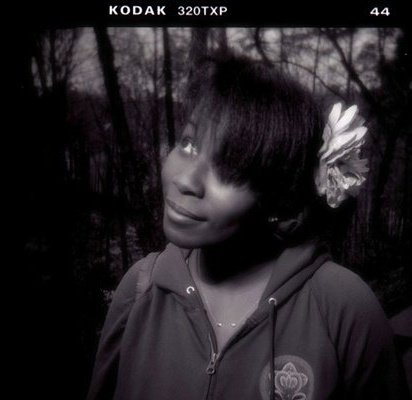

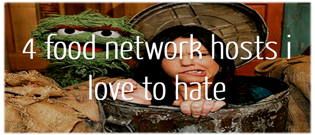
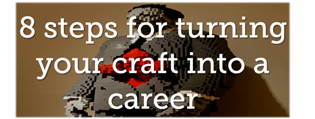

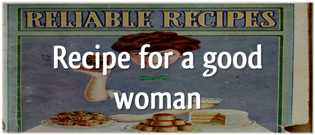

…in one word, EXCELLENT!!!!
Excellent interview. He seems like a really cool guy.